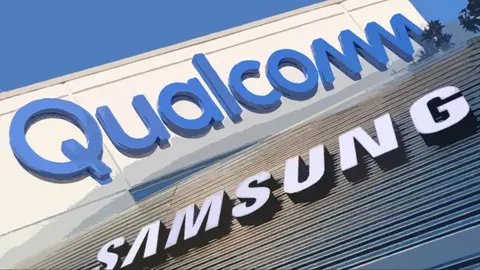According to several reports, Samsung has currently focused on bringing back the Exynos chip. The company is trying to reintroduce the chipset in its flagship devices. As stated by the reports, the Exynos 2400 processor will be featured in certain models of the Galaxy S24 series. A year after the launch of the Galaxy S24 series, Samsung could take things a bit further. The company could begin customizing its own Snapdragon chips. Samsung Foundry would be in charge of manufacturing the customized Snapdragon chips.
Both Samsung and TSMC Could Manufacture the Snapdragon 8 Gen 4 Chip
According to popular tipster Revegnus (@Tech_Reve), TSMC will make use of its 3nm (N3E) process to manufacture the Snapdragon 8 Gen 4 chip. On the other hand, Samsung will handle the manufacturing of the Snapdragon 8 Gen 2 for Galaxy chips. The South Korean company will build the chip using Samsung Foundry’s 3nm GAP (3GAP) process.
We cannot confirm the accuracy of this information. However, if it ends up being accurate, it will mean Samsung has taken a giant step in the chip process industry. This will simply mean that Samsung’s 3nm chipset can finally match up with that of TSMC. Particularly, we are speaking of performance and efficiency.
As it stands now, this information is only based on rumors. The Samsung Galaxy S25 is still two years away. Hence, information regarding this will only get a lot clearer as we get closer to the launch of the Galaxy S25 series.
If this happens, it will also mean that two companies will have to produce the Snapdragon 8 Gen 4 chip. A similar incident happened with Apple’s A9 chip. The A9 chip was built by both Samsung and TSMC. Samsung built the chip on a 14nm architecture. Meanwhile, TSMC built it on a 16nm process. While Samsung’s A9 chip was smaller in size, TSMC’s version was rather more power efficient.
Samsung Could Produce Both Snapdragon 8 Gen 4 and Exynos Chip in 2025
Also note that the Snapdragon 8 Gen 4 chip could team up with Samsung’s own Exynos chip for the Galaxy S25 series. Both chips could also be built by Samsung Foundry’s 3nm GAP process. For this reason, they could offer similar performance levels. Definitely, there may be few performance differences but that would be seen after the launch of both chips.
